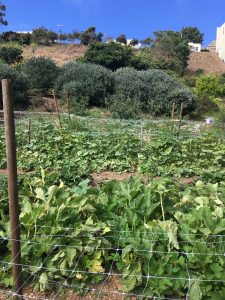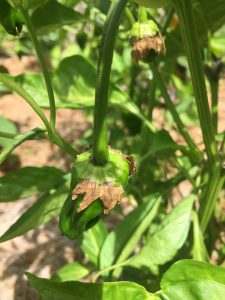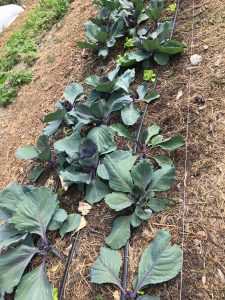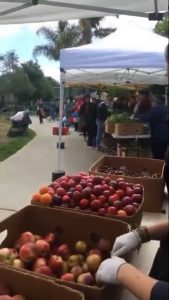 This summer, I was a Food Justice Intern with Alemany Farm. Alemany Farm is a 3.5 acre, organic farm in San Francisco that aims to increase environmental education and food security. The farm is completely open to the public, and all the food harvested is donated to the local community. The farm also hosts a variety of programs, classes, and volunteer days to educate others about urban agriculture, ecological knowledge, and economic justice through local food. As an intern with Alemany, I participated in both harvest and distribution. Through harvest and work on the farm, I learned many practical skills about organic urban agriculture, such as optimal harvest methods, organic practices for pest control, and efficient land use. Alemany Farm’s primary outlet for distribution of food is the Free Farm Stand, a volunteer-run project that takes place in San Francisco’s Mission
This summer, I was a Food Justice Intern with Alemany Farm. Alemany Farm is a 3.5 acre, organic farm in San Francisco that aims to increase environmental education and food security. The farm is completely open to the public, and all the food harvested is donated to the local community. The farm also hosts a variety of programs, classes, and volunteer days to educate others about urban agriculture, ecological knowledge, and economic justice through local food. As an intern with Alemany, I participated in both harvest and distribution. Through harvest and work on the farm, I learned many practical skills about organic urban agriculture, such as optimal harvest methods, organic practices for pest control, and efficient land use. Alemany Farm’s primary outlet for distribution of food is the Free Farm Stand, a volunteer-run project that takes place in San Francisco’s Mission
District every Sunday. The Free Farm Stand provides fresh, healthy, free produce to community residents, aiming to address the issue of food insecurity by giving out produce from Alemany as well as donations from local farmers’ markets. As an intern, I would help hand out the produce; while we have an abundance to give, we try to regulate it to ensure we can give to as many people as possible.
I am an Environmental Studies major hoping to pursue a career related to improving food systems, and this internship experience was incredibly inspiring for me. In addition to increasing my knowledge of environmentally-conscious urban agriculture, my time with Alemany and the Free Farm Stand also gave me immense hope. After taking classes and discussing the issues of the industrialized food system in the United States, it was refreshing to witness firsthand this local food chain: the produce that I harvested at Alemany would be distributed just two days later at the Free Farm Stand for those in need. In this food system, local, organic, nutritious food is accessible to all people, regardless of budget. Additionally, our distribution of excess food from farmers’ markets helps to eliminate food waste. Although the scale of this food system is just one community, I think it is a reminder that there is huge potential for us to address hunger and environmental issues by changing our methods of production and improving our systems of distribution. I am grateful for my experience with Alemany Farm, and I am excited to continue engaging in work with food systems.

Alemany Farm

Fresh Produce

Ready for Harvest

